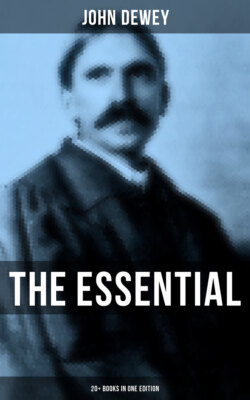Читать книгу The Essential John Dewey: 20+ Books in One Edition - Джон Дьюи - Страница 13
На сайте Литреса книга снята с продажи.
Preface
ОглавлениеTable of Contents
The purpose of the series of which the present volume is one, is not, as will be seen by reference to the statement in the initial volume, to sum up in toto the system of any philosopher, but to give a “critical exposition” of some one masterpiece. In treating the “Nouveaux Essais” of Leibniz, I have found myself obliged, at times, to violate the letter of this expressed intention, in order to fulfil its spirit. The “Nouveaux Essais,” in spite of its being one of the two most extended philosophical writings of Leibniz, is a compendium of comments, rather than a connected argument or exposition. It has all the suggestiveness and richness of a note-book, but with much also of its fragmentariness. I have therefore been obliged to supplement my account of it by constant references to the other writings of Leibniz, and occasionally to take considerable liberty with the order of the treatment of topics. Upon the whole, this book will be found, I hope, to be a faithful reflex not only of Leibniz’s thought, but also of his discussions in the “Nouveaux Essais.”
In the main, the course of philosophic thought since the time of Leibniz has been such as to render almost self-evident his limitations, and to suggest needed corrections and amplifications. Indeed, it is much easier for those whose thoughts follow the turn that Kant has given modern thinking to appreciate the defects of Leibniz than to realize his greatness. I have endeavored, therefore, in the body of the work, to identify my thought with that of Leibniz as much as possible, to assume his standpoint and method, and, for the most part, to confine express criticism upon his limitations to the final chapter. In particular, I have attempted to bring out the relations of philosophy to the growing science of his times, to state the doctrine of pre-established harmony as he himself meant it, and to give something like consistency and coherency to his doctrine of material existence and of nature. This last task seemed especially to require doing. I have also endeavored to keep in mind, throughout, Leibniz’s relations to Locke, and to show the “Nouveaux Essais” as typical of the distinction between characteristic British and German thought.
JOHN DEWEY.
May, 1888.
